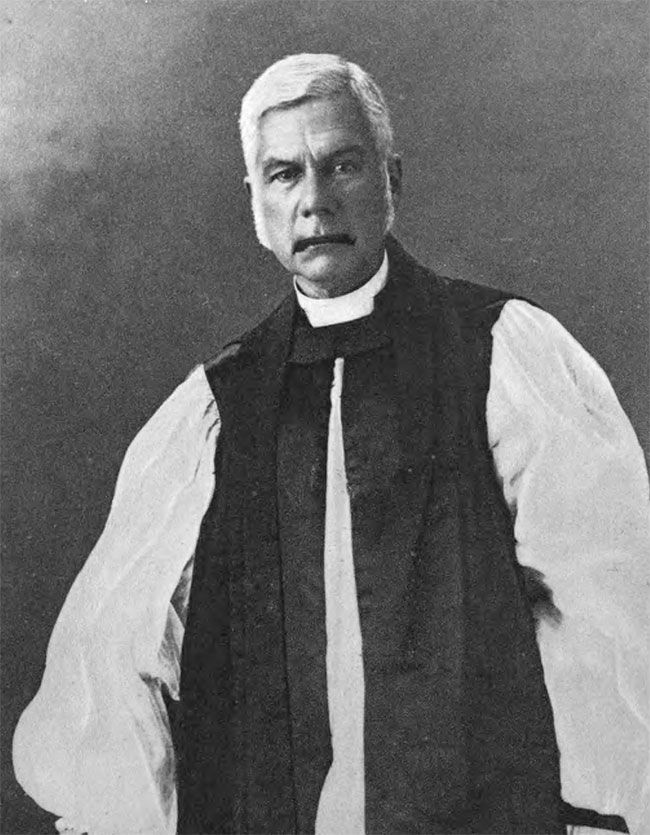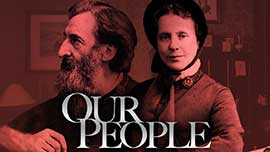WILLIAM WALSHAM HOW, POOR MAN’S BISHOP

[Above: Bishop How from The Knowledge of God and Other Sermons. New York: E. P. Dutton & Co., 1892. Public domain.]
ONE DAY AROUND 1890, the inmates of a workhouse in Wakefield, England, crowded to windows in anticipation. Their bishop was coming to speak to them! Like people who line a street to view a parade, they were excited. They expected at the very least a magnificent coach with a team of horses and liveried footmen. Imagine their disappointment when all they saw was an old gentleman who drove up alone in a pony cart. Tender-hearted Bishop William Walsham How had avoided a magnificent display, thinking it would rub the noses of the poor in their poverty.
Born in 1823, How did well in school and attended Oxford. Having set his sights on Christian ministry, he was ordained a deacon in the Church of England on this day 20 December, 1846. Wherever he was assigned, he made deep friendships and won love and respect. In addition to performing his pastoral work, he wrote books and hymns.
Early in his career admirers recognized his spiritual depth and his practical ability as an administrator. Men such as Lord Shaftesbury offered him opportunities to become a bishop. How turned down all such offers until 1879 when he accepted an appeal to become suffragan (assistant) bishop in poverty-stricken East London.
That was work How could throw himself into heart and soul. He actively encouraged East London rectors and priests who labored despite understaffing and the formidable opposition of forces of sin. Not only did he visit them regularly, he set up a fund to enable the diocese to employ additional church workers. With his wife Frances, he gathered the team regularly at his home for fellowship and refreshments.
The spiritual and physical condition of East London improved under his zealous oversight and benefited from the simultaneous work of organizations such as the Salvation Army. His love for common people won him the title “Poor Man’s Bishop.” He knew how to couch his teaching in terms his audience could understand. This was true also in his dealings with youngsters, and he earned a second nickname—“The Children’s Bishop” because of his ease with them. (He told with delight of one little girl who examined him intently for a few minutes before remarking to her mother with disgust, “Why, he’s just a man!”)
Eventually a new bishop came to oversee the diocese and brought new expectations. Unable to carry on work in the manner he found most effective, How accepted an offer to become Bishop of Wakefield in 1888.
He served there to the end of his life, nine years later. During a violent coal strike, he endeavored unsuccessfully to bring reconciliation between mine-owners and miners.
Among his hymns were “For All the Saints,” “The Word of God Incarnate,” and “We Give Thee but Thine Own.”
We give thee but thine own,
Whate’er the gift may be;
all that we have is thine alone,
a trust, O Lord, from thee.
—Dan Graves
----- ----- -----
William Walsham How worked with the Salvation Army. The story of the Salvation Army is told in Our People: Story Of William & Catherine Booth. Watch it at RedeemTV.
Our People: The Story Of William and Catherine Booth can be purchased at Vision Video.







